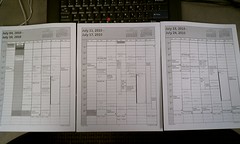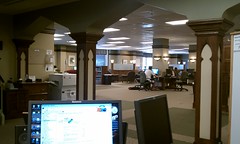Speakers: Regina Reynolds & Laurie Kaplan
The US ISSN Center (part of the Library of Congress) is primarily responsible for assigning ISSN and metadata to journals. They work with the international ISSN network as well as answering questions from libraries and publishers.
R.R. Bowker is a subdivision of ProQuest. They create metadata for libraries and publishers and several products like Ulrichs. They have one employee working in the ISSN Center assigning ISSNs, creating CONSER records, screens incoming requests, and solves problems. Initially, they worked mostly with the Ulrichs database, and now are working with the SerialsSolutions database.
The relationship began over metadata. Bowker wanted data for Ulrichs, and the ISSN Center needed more staff to do it. The contract is non-exclusive, but to date, no other company has been involved. LoC would like to develop more relationships like this, in part to reduce duplication of effort.
The benefit for publishers is a one-stop shop for ISSN registration, Ulrichs inclusion, and CONSER records in WorldCat. The serials community benefits from having a standard number for each publication, fuller records, and an advocate for gathering that metadata.
Some of the challenges have been technological (firewalls, different computers, etc.) and administrative (different bosses, holidays, etc,). They are looking to better ways of collaborating between the ISSN record creation and the Ulrichs record creation.
Standards matter. Common data elements can be mapped.
More detail in the current issue of Serials Review.
Speaker: Jim DelRosso (DigitalCommons@ILR)
When creating a digital repository, start small. They started initially with getting faculty publications up. This required developing strong relationships with them.
While you may be starting small, you need to dream big as well. What else can you do?
Get support. Go to the offices of the people you want to work with. Get familiar with the administrative assistants. But, be ready to do everything yourself.
Plan ahead, but write it in pencil. They organizational structure of your repository needs to be flexible to handle outside changes.
Once you get going, take time to assess how it’s doing. Get familiar with the reports available in your system, or use tools like Google Analytics. Don’t rely only on anecdotes. Use both numbers and stories.



